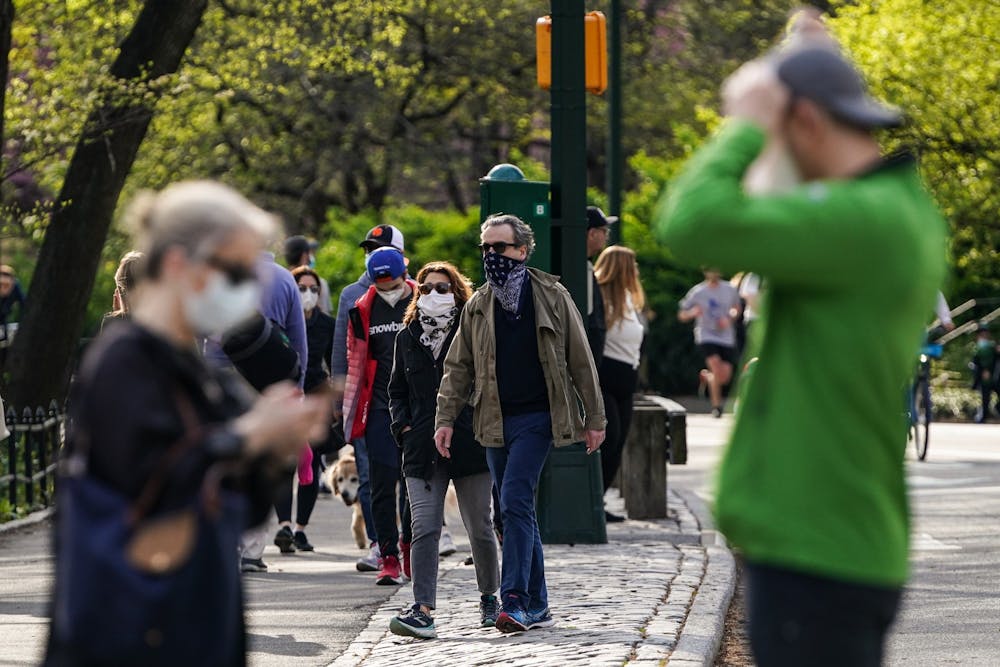Last weekend, thousands of rugby fans stood side by side in New Zealand, celebrating the nation’s successful elimination of COVID-19. Over the past week, Kiwis have been reuniting with loved ones, sharing meals and beers, and returning a sense of normalcy to the nation. Having been in lockdown since March 25, New Zealand ended its four-stage reopening early, after reportedly having no new cases of the virus. After learning that there were no new cases, Prime Minister Jacinda Ardern reportedly “did a little dance.”
Unfortunately, her dance wasn’t able to last more than eight days. Two women in New Zealand tested positive for COVID-19 after returning from abroad and being granted a “compassionate exemption” from the standard 14-day quarantine. New Zealand was well lauded for its response to the virus, but the recent events suggest that completely eradicating it is much, much harder than one would hope.
The virus’s return to New Zealand exemplifies the long road ahead of us when it comes to this pandemic. There will be ups and downs along the way, and proper leadership can certainly make or break a nation in these times. But any sort of long-term improvement is entirely contingent on our cooperation as citizens. Studies show that masks, even cloth masks, have a decent filtration efficiency, and research from Cambridge University suggests that mask usage is one of the most effective ways to decrease the spread of COVID-19 at the population level. Furthermore, social distancing — at least until a reliable vaccine is provided — is paramount.
Yet, we’re evidently unable to comply with those essential measures in the United States, with the past several weeks seeing an alarming increase in unsafe practices. Over the Memorial Day weekend, thousands of Americans flooded beaches in Florida, Massachusetts, and Maryland, and many were not wearing masks or practicing physical distancing. In fact, Ralph Northam, the Governor of Virginia, was widely criticized for not wearing a mask while visiting beachgoers in Virginia Beach, ignoring the very guidelines that he urges other Virginians to follow.
The anecdotal evidence of America’s apathy is supported by many concerning figures. According to the Johns Hopkins Coronavirus Resource Center, COVID-19 is causing 35.49 deaths per 100,000 Americans compared to 0.45 deaths per 100,000 New Zealanders. Many suggest that a second, more destructive wave of the virus is ahead, and still others suggest that we haven’t even actually escaped the first wave. Cases are already spiking in 22 states, and the recent rise can be attributed to a lack of physical distancing and mask usage. Our nation is slipping back into the grasp of a pandemic, and we’re blindly letting it happen.
I understand the urge to abandon the social distancing measures that have unfortunately defined contemporary culture over the past several months. The public health interventions mandated to combat COVID-19 have caused or exacerbated mental illnesses for many, and the prevalence of social interaction is a saving grace for them. Admittedly, my own commitment to following these guidelines has lapsed. I participated in local protests for the Black Lives Matter movement, and after tiring of isolation, I met with friends and family members outside. I try to wear a mask and sanitize as much as possible, but risks are risks, no matter how small.
However, increasingly common scenes of large crowds without masks embody the false sense of security that the American public has ignorantly embraced. They embody a tremendous amount of hubris. Obviously, you know the risks for yourself if you pretend that the coronavirus is no longer a problem — but this is not about you. This is about the estimated 92.6 million high-risk Americans. This is about the immensity of grief that overcomes those who lose loved ones to COVID-19. This is about the 40 million unemployed Americans who can’t bear to lose their jobs again. This is about the individuals who would likely face financial devastation if they were hospitalized.
Many of us won’t make it out of this. With the exponential nature of a viral pandemic, one decision can impact thousands of people. Your choices matter more than you think, so choose right.
SEE MORE FROM VARUN SARASWATHULA:

VARUN SARASWATHULA is a rising College junior from Herndon, V.A. studying the Biological Basis of Behavior and Healthcare Management. His email is vsaras@sas.upenn.edu.









